INSPIRATION
Daniel Popote: A Hero in Wildlife Conservation
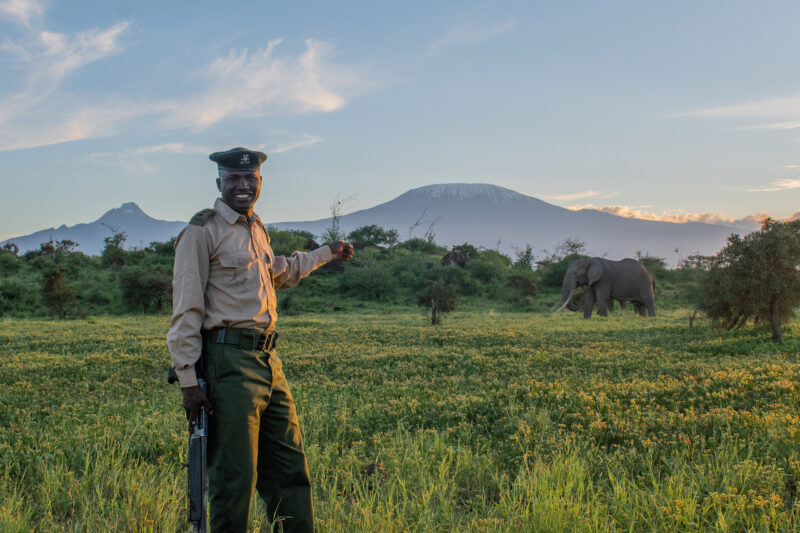
In the November issue of Nomad Magazine, we speak to Wildlife ranger Daniel Ole Popote of Big Life Foundation. Popote has spent 19 years protecting wildlife in Kimana Conservancy, a community-owned sanctuary in the Amboseli ecosystem of southwestern Kenya. In July 2022 he became one of just 12 global winners of the IUCN International Ranger Award.
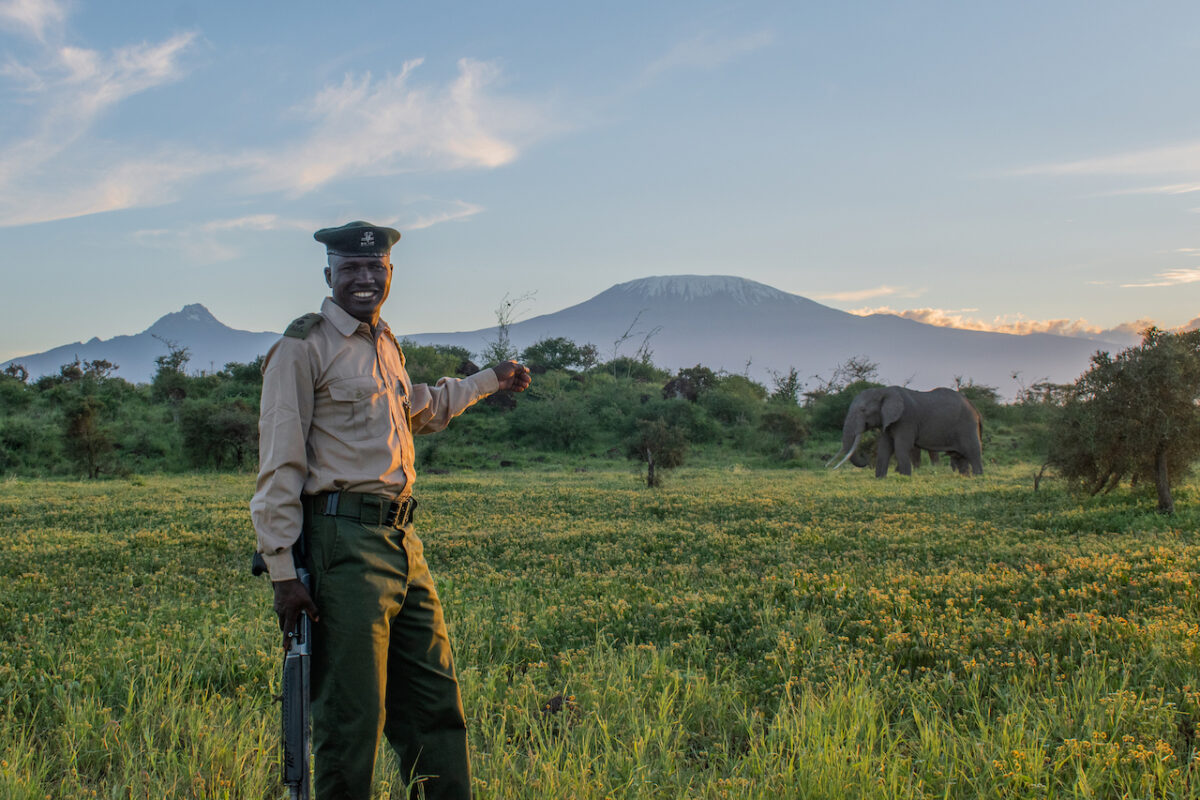
What made you interested in becoming a ranger?
I developed an interest in becoming a ranger during my younger years when I was herding my father’s cattle. At that time poaching was high, and I used to give KWS reports of wild animals as well as poachers if I spotted them at night in our area. Every time when the KWS rangers came, they would talk to me and tell me all about the importance of nature. This gave me knowledge and made me come to love nature.
What is one of the most important roles you believe rangers play in conservation today?
There are two I can say. Rangers educate our communities about the importance of the wilderness, that this is an environment where people depend on nature and vice versa. We want people to come to see the benefits and the need to protect nature. Second, we take part in keeping the community safe. There was a time when the response to a report of a wild animal attacking crops or their homes or their livestock would be very late. We are making sure we get there to help quicker.
What is something you think more people should know about rangers?
Some people in Kenya do not understand our work. They should not think of it as just a job like others, but something a bit special. People should know that the work of rangers is recognised worldwide and we hope that more of our compatriots can come to support what we do, even come to feel passionately about our work and support us.
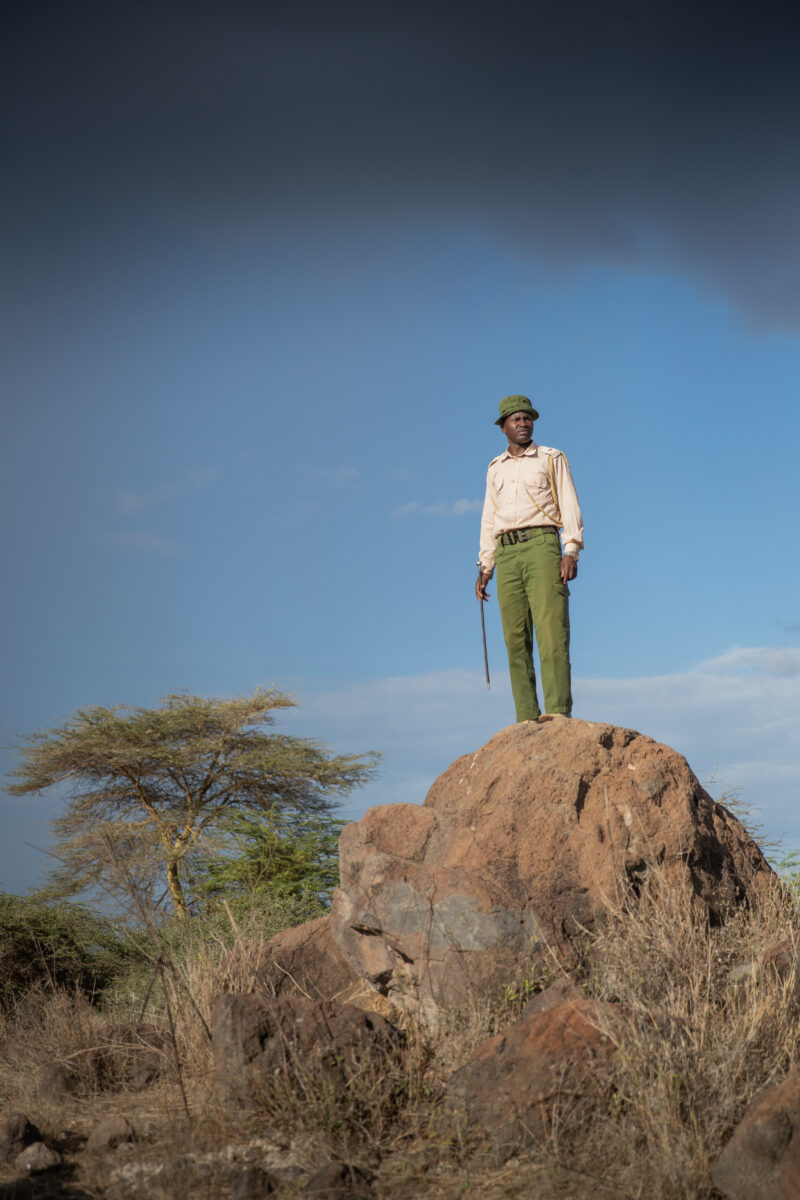
Any interesting stories, share one of your most memorable experiences out in the field?
A story I remember happened some years ago when we came across poachers who had killed an elephant. They were busy taking the tusks. The poachers were armed with sophisticated weapons and we were almost bare-handed, but we used rangers’ tactics to intervene and catch them. At first they managed to run away but after our investigation we managed to get them. We recovered the tusks and took them to KWS.
How did you join Big Life Foundation?
Before Big Life, I was working with another organisation in Kimana Sanctuary. This organisation left but we stayed on, taking care of the sanctuary without salaries. In 2018 Big Life started working in Kimana and paying a lease to the community with support from other partners to help manage the area. I was picked to spearhead the conservation effort and now I lead a team of 37 rangers in protecting the area.
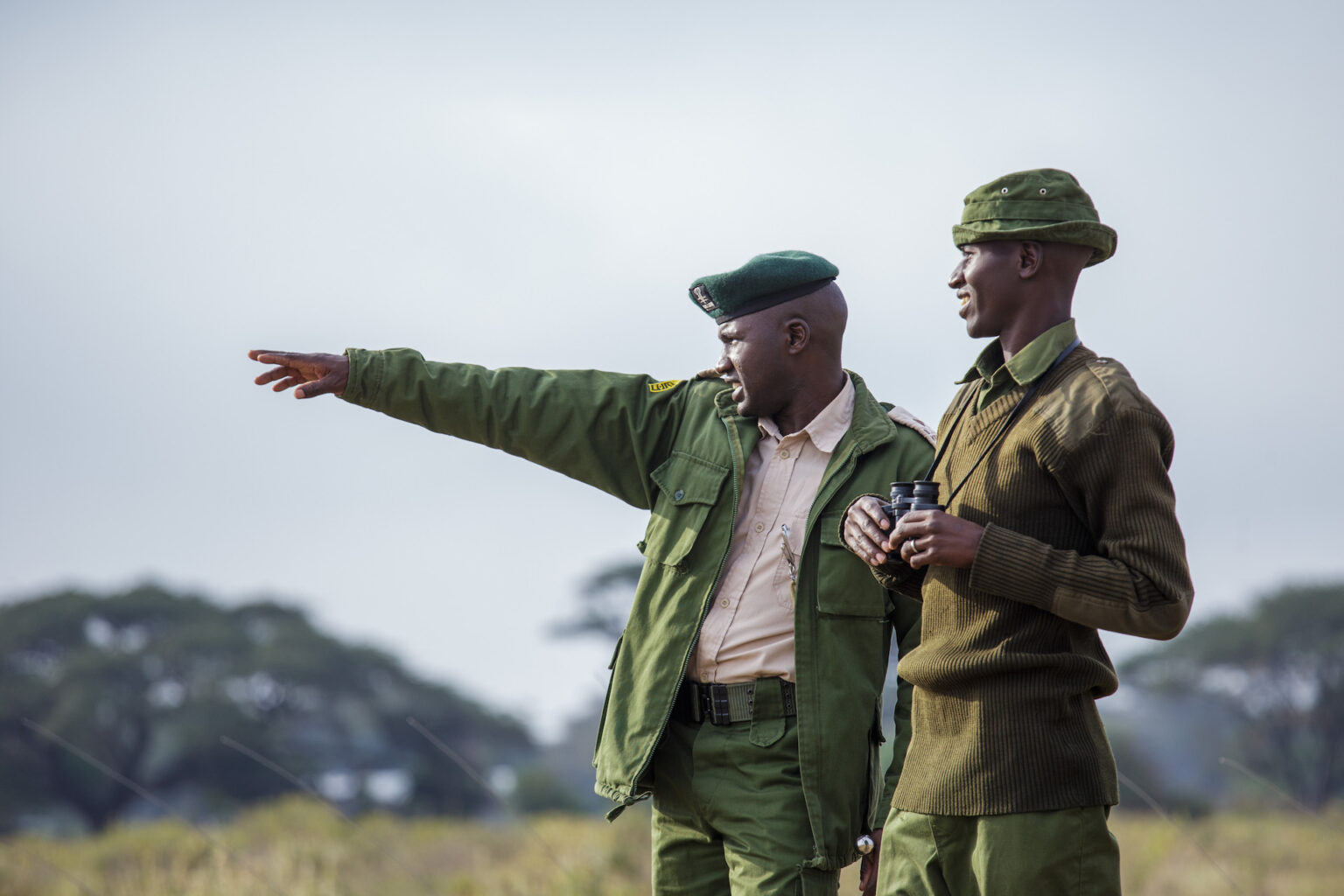
What is the average day for a ranger?
During the day we normally patrol, checking for problems around the communities, or with wildlife and the habitat. At night we work to stop poaching, to help the community prevent crop-raids and so on. Rangers don’t work nine-to-five, and there is almost no limit to the time you must be available. A ranger is on call all the time, so you must have a passion for the work in this line of duty.
What is your favourite part of being a Big Life ranger?
Big Life is deeply involved in the day-to-day life of rangers on both a professional and personal level. The organisation is caring and supportive of all aspects of the rangers’ work, in the field, their health, and so on. Now our rangers are known all over the world thanks to Big Life.
Tell us about your IUCN award and the event in Rwanda
The event was amazing and fabulous and the highlight was interacting with counterparts from organisations around the world. Conservation is being done everywhere. Being a ranger and the work of conserving nature is not taken for granted. People all over the world consider it a great job.
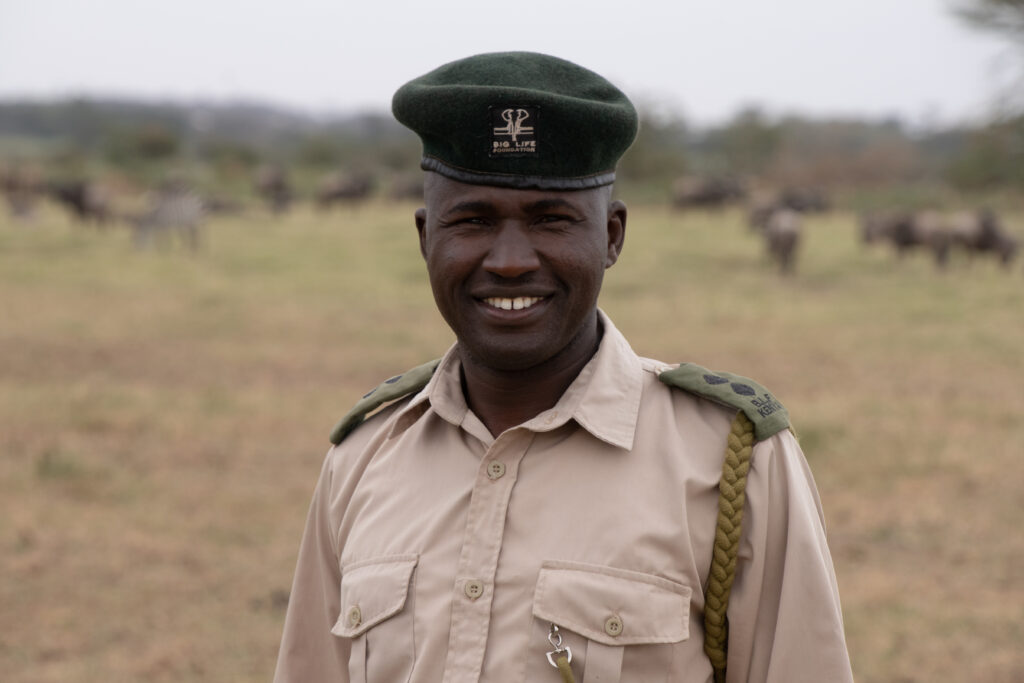
What are the biggest challenges facing rangers today?
There is a lot of human wildlife conflict which is increasing because of the prolonged drought. It forces wildlife to move further than usual, looking for food in shambas (farms) or attacking livestock. There is the problem of wildfires in the dry season. They are started by unknown people to open up the bush for their unknown business. Rangers must stop the fires from spreading. Often we work without proper equipment and there is a lot of wind, but we use our tactics and in the end we manage, though it is exhausting.
How can people help?
Anyone can help through Big Life’s Monthly Giving Program. Also, people can read about us, learn what to do and see how to support us and love our work.
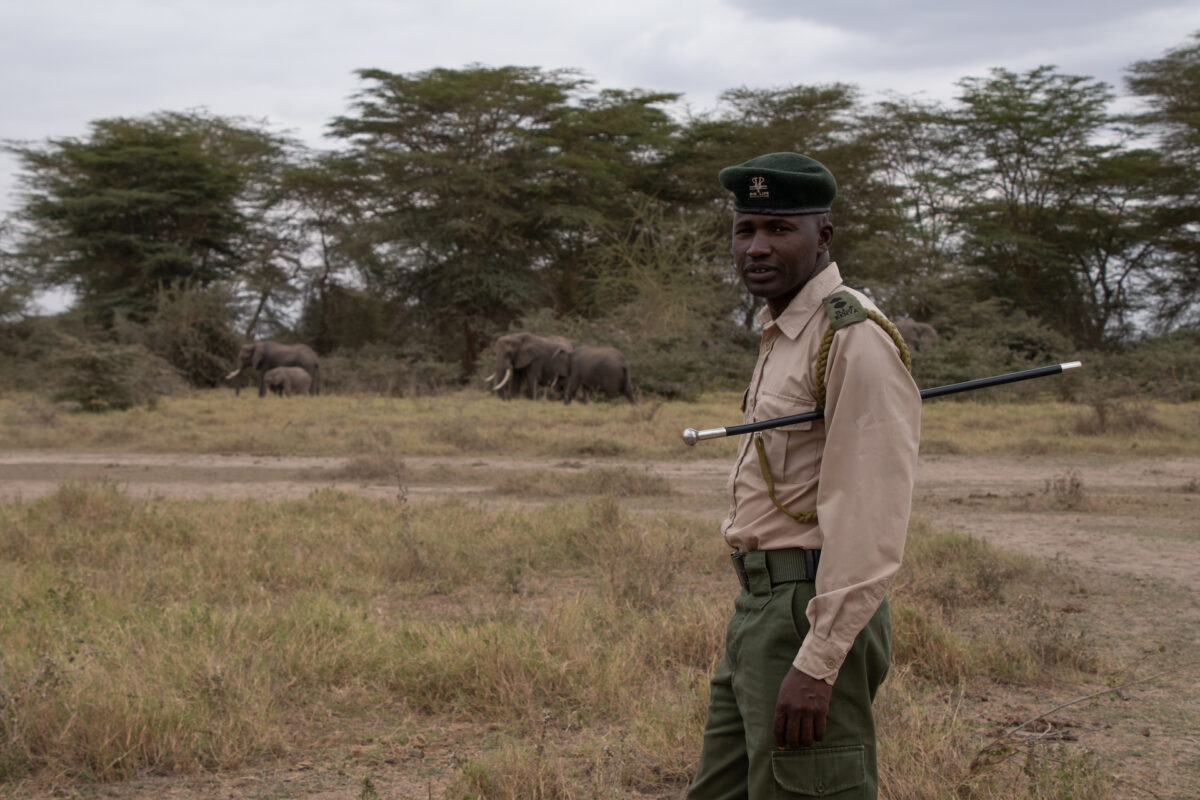
Your advice to anyone looking to become a ranger?
One must have a passion for wildlife and people in equal measure. It is not easy work because you must work without watching the clock and know that all time is working time. The job needs a passionate person committed towards this call.
Our Top Experiences
SEEN SOMETHING YOU LIKE?
Enquire now and our team will create a custom itinerary tailored to your preferences.

CONTACT
enquiries@nomad.africa
Tel: +254 708 238 738
Purple Nomad Ltd
PO Box 69671 - 00400
Mwanzi Avenue, Nairobi, Kenya



